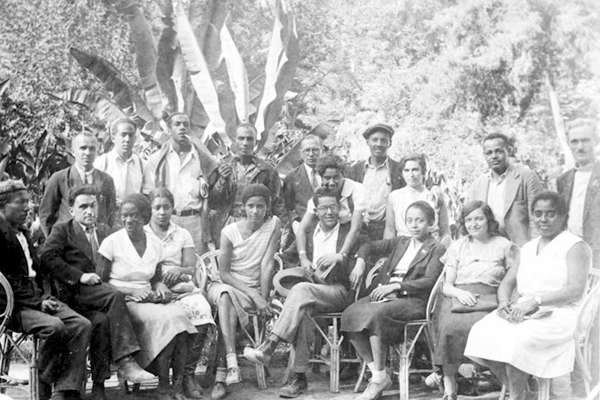Learning from the Archives of African-American Women’s Travels to State Socialist Countries, 1920-1980

By Graduate Student Tatsiana Shchurko, Department of Women's, Gender and Sexuality Studies

This summer, the Migration, Mobility and Immobility Project supported my research trip to Atlanta, Georgia, to access the primary sources for my dissertation project on internationalist feminist solidarities between the United States and state socialist countries. Specifically, I visited Spelman College Archives and Emory University's Stuart A. Rose Manuscript, Archives and Rare Book Library, where records of the journeys of African American women to state socialist countries are held. This trip to the archives in Atlanta was a starting point for my research project on legacies of feminist internationalism.
Many scholars focus on the economic, cultural and political impacts of global colonial and imperial formations on transnational migration. Many others also challenge the expansion and mobility of certain knowledge and concepts that serve the goals of globalization. In this sense, global economic markets and the technologies of globalization facilitate violent practices of travel and border crossing. In turn, my research focuses on how transnational travels play a fundamental role in establishing cross-cultural connections and a sense of agency within conditions of restraint.
Mutual transnational travels and exchanges were important parts of the mission of socialist internationalism against capitalist expansion, imperialism, colonialism and racism. In this way, internationalist practices connected oppressed groups around the world. Nevertheless, in analyzing socialist internationalism, scholars often focus on leaders, ideology, geopolitics and political parties in order to debate the extent and mechanisms of Soviet Union’s attempts to expand its military and economic influence. From this perspective, internationalism is seen as no more than just a form of ideological justification for geopolitical expansion. I return to internationalism as a practice in order to interrogate, reflect and theorize what can be learned from internationalism if we look at the micro-relations rather than the macro (state level) -relations. In this case, analysis of African American women’s travels allows elaborating and imagining important perspectives on interrelations between agency, race, gender, global poverty and migration.
Spelman College Archives and Emory University's Stuart A. Rose Manuscript, Archives and Rare Book Library hold a plethora of materials that document the personal activities, livelihoods and records related to African American women’s travels to the state socialist countries. Specifically, I have worked with the archives that document travels of Audre Lorde, Evelyn Graves Crawford and Louise Thompson Patterson. Their collections include correspondence, poetry, prose, periodical contributions, manuscripts, diaries, journals, video and audio recordings and a host of biographical and miscellaneous materials that relate to their transnational travels. Analysis of these various materials will enrich the understanding of how travels of African American women political activists to state socialist countries informed their thinking about the interconnected issues of freedom, power, race, gender, class and the ongoing need for social change globally.
